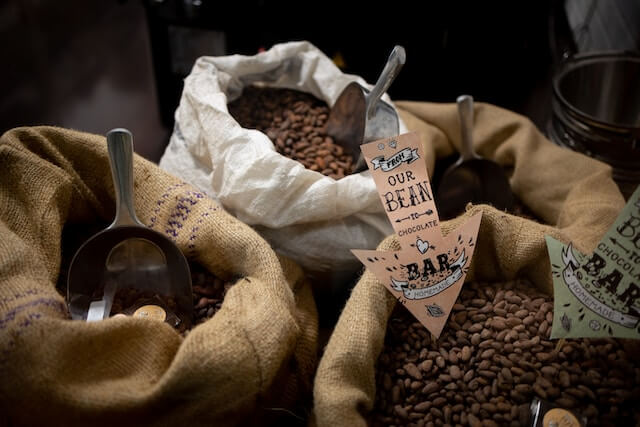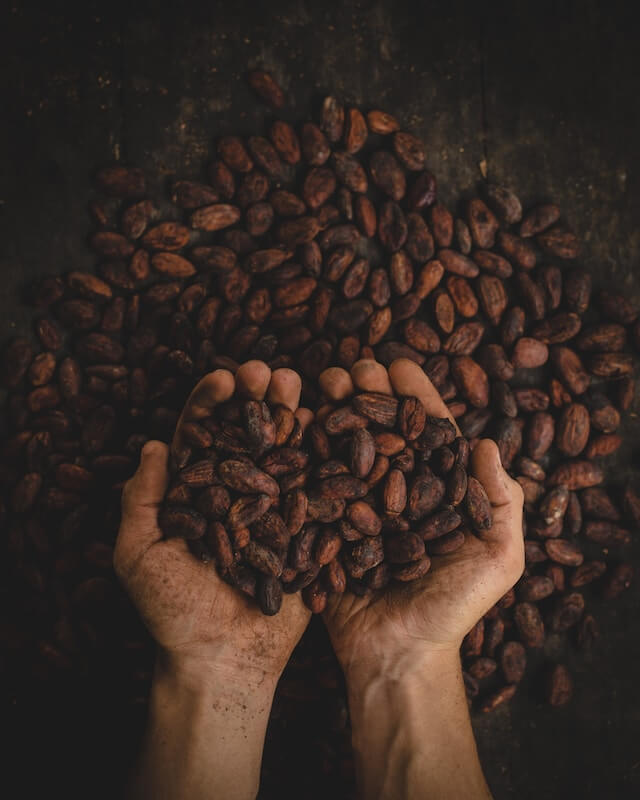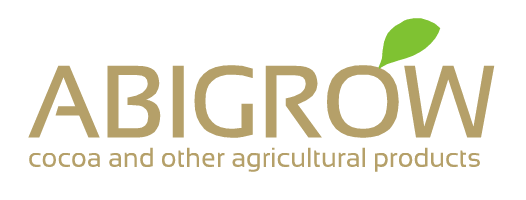Cocoa Production

Abigrow's Influence on Cocoa Production
Revolutionizing the Cocoa Trade
Welcome to Abigrow, the forefront of transforming the cocoa trade landscape.
With an unwavering commitment to enhancing cocoa production, we are driving innovation, sustainability, and prosperity within this booming industry. Discover how Abigrow is reshaping the cocoa trade and ushering in a new era of growth.
Business / Industry Overview
The cocoa trade is a lucrative venture that extends beyond mere confectionery delights. Beyond its use in chocolate, cocoa finds its way into cocoa butter, ointments, medicines, and more. The love for chocolate has led Americans to spend a staggering $22 billion annually, underlining the industry's potential.
Global demand for cocoa remains relentless, particularly in Western countries like the United States and Europe. However, it's important to note that cocoa's production hub lies primarily in South America and Africa. Four West African nations – Ivory Coast, Ghana, Nigeria, and Cameroon – stand responsible for 70% of the world's cocoa supply.
Among these, Ivory Coast and Ghana are indisputable leaders, collectively contributing to over 50% of global cocoa production. The weather conditions in West African countries like Ivory Coast, Ghana, and Nigeria make them cocoa production powerhouses.
Between 2017 and 2020
- the global cocoa supply grew by nearly 5%, with Ivory Coast singlehandedly accounting for almost 40% of this increase. Indonesia also plays a significant role in cocoa bean production. When combined, Ivory Coast, Ghana, Nigeria, and Indonesia make up a substantial 75% of the world's cocoa output.
China, a rising superpower, is injecting substantial investments into African cocoa farming. These investments span human resources and technological innovations, promising to propel the industry forward. Abigrow is at the heart of this transformation, facilitating collaboration, innovation, and sustainable practices.
The Rising Global Competition
For years, African and European nations have dominated cocoa export and import activities. The likes of Ivory Coast, Ghana, Nigeria, and Cameroon control 70% of the global cocoa consumption and exports, with Ivory Coast and Ghana driving over half of this share. However, a new player is about to reshape the landscape.
Enter Abigrow, a catalyst poised to redefine the cocoa trade. The global cocoa market generated $12.8 billion in 2019 and is projected to reach $15.5 billion by 2027, showcasing a Compound Annual Growth Rate (CAGR) of 4.3% from 2021 to 2027, as reported by Allied Market Research.

“When we say we are empowered by passion, we mean it. This is the way we have sticked with since the very first day of our business. We are proud of what we have done but also very keen for what can be done.”
Mr. Oluseun Adepeju
Health and Nutrition
In the past, chocolate has been favoured as a high-calorie food to boost the energy of high performing people such as athletes or soldiers. Unfortunately, due to the processes and ingredients involved in making chocolate (sugar, milk, other refined ingredients with a high calorie content), it has been gradually classified as “junk food” and linked to the rise in the number of obesity cases.
Recently, more research has been conducted on the health and nutritional attributes of cocoa and chocolate. Regular consumption of cocoa can improve a person’s general mood and fight symptoms linked to depression, thus leading to a better quality of life. Research findings also indicate that some components in cocoa can help prevent cardiovascular diseases and reduce the risk of cancer.
Additional health benefits include helping with the management of one’s weight and providing a source of antioxidants through cocoa fibres, or reducing the risk of developing type 2 diabetes through cocoa flavanols.
Join us in shaping the future of cocoa trade
Abigrow stands as a beacon of change in the cocoa trade domain. Our commitment to revolutionizing cocoa production, coupled with China's ambitious investments, foretells a promising future for the industry. Join us in shaping the future of cocoa trade – a future marked by growth, sustainability, and prosperity.
Stay connected with Abigrow and be part of a journey that promises to redefine the cocoa trade for generations to come.
